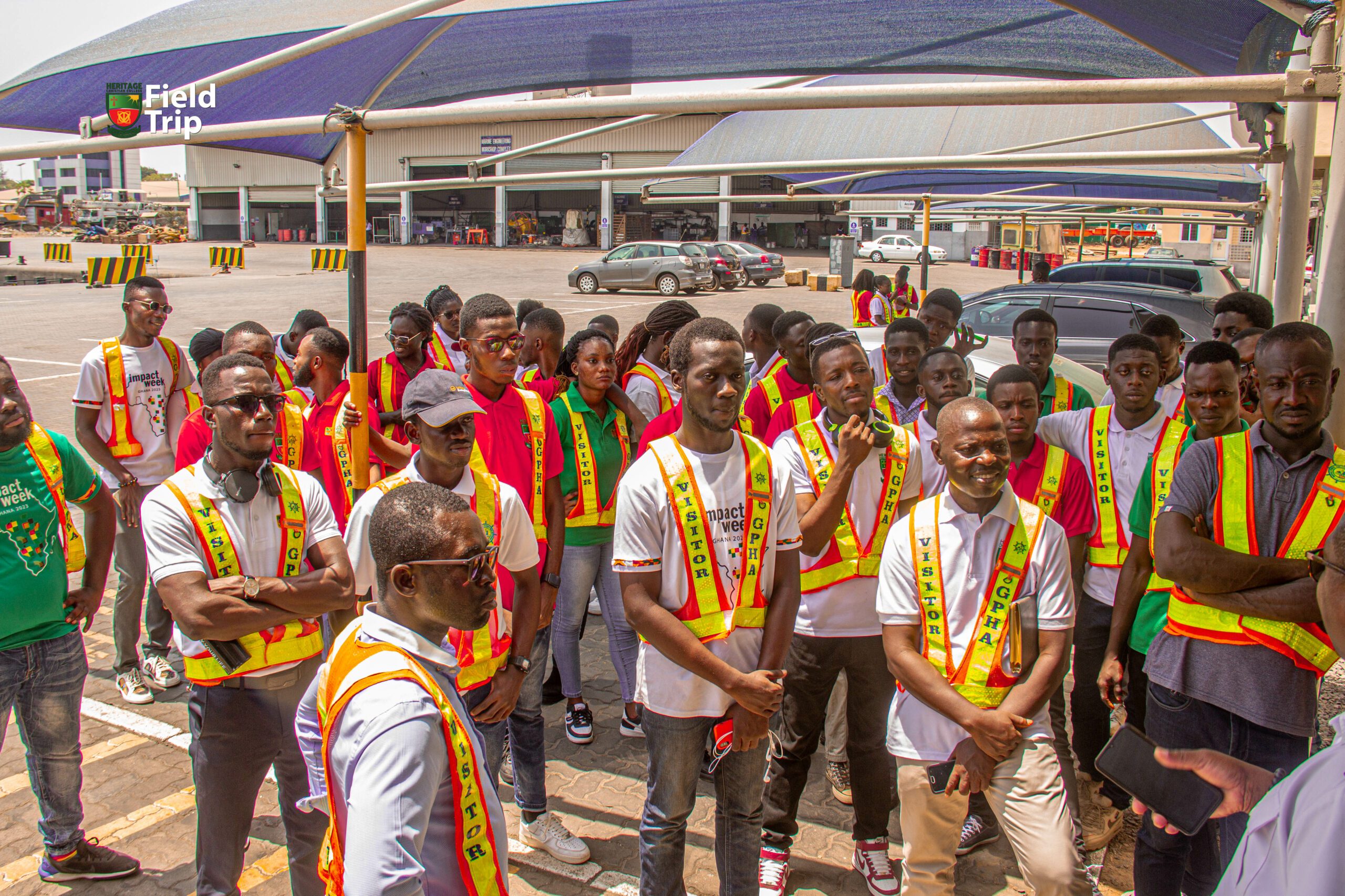

The Department of Informatics (DoI) embarked on a Field Trip to the Ghana Ports and Harbour Authority (GPHA), Tema in the Greater Accra region. The visit forms part of planned activities to contribute to the Heritage strategic goal that seeks to offer cutting-edge programs that ensure the holistic development of graduates to respond to the needs of the industry. GPHA is an identified collaborator of DoI towards efforts at integrating professional practices into students’ learning with the goal of holistic development of students.
The visit had the objective of encouraging students to learn firsthand how the concepts and ideas gathered in various lectures are implemented in real work environments. This objective aligns well with the strategic goal of building a strong brand identity in the delivery of tertiary education that ensures that heritage graduates are placed in gainful employment with industry.
The 120 students Field trip included a cross-section of Heritage students who participated in the field trip. The group’s arrival was expectant and warmly accorded the needed protocols under the guidance of four tour guards. The guards educated the team and showed them various sections of GPHA Operations.
The GPHA operates land and seaports in Ghana and the Tema Harbour is the largest of the two ports in the country – the other port being the Takoradi Port. The Tema Port, commissioned in 1962, covers an approximate area of 2.5 million square meters of land and another 3 million square meters of closed seas. The port serves as the largest container port in West Africa while serving as the main entry point for approximately 99% of all imports to Ghana. An average of 1500 vessels dock at the Tema Port every year, including passenger vessels, container cargo, fresh cargo, general cargo vessels, and fuel vessels. The port facilitates about 80% of trade in Ghana that involves Warehouses, haulage, and transport.
The team visited various sections of the GPHA operations including the Dry Dock and the Signals and Controls department. Students were educated on the operations of the dry dock section. Students saw different vessels – fuel, fresh, and dry cargo – discharged goods at the different and appropriate quay at the ports Different pilots took turns to explain the activities undertaken to receive and dispatch the vessels. They also explained the types of training required to become a professional – vessel captain and pilot.
Need help? :)